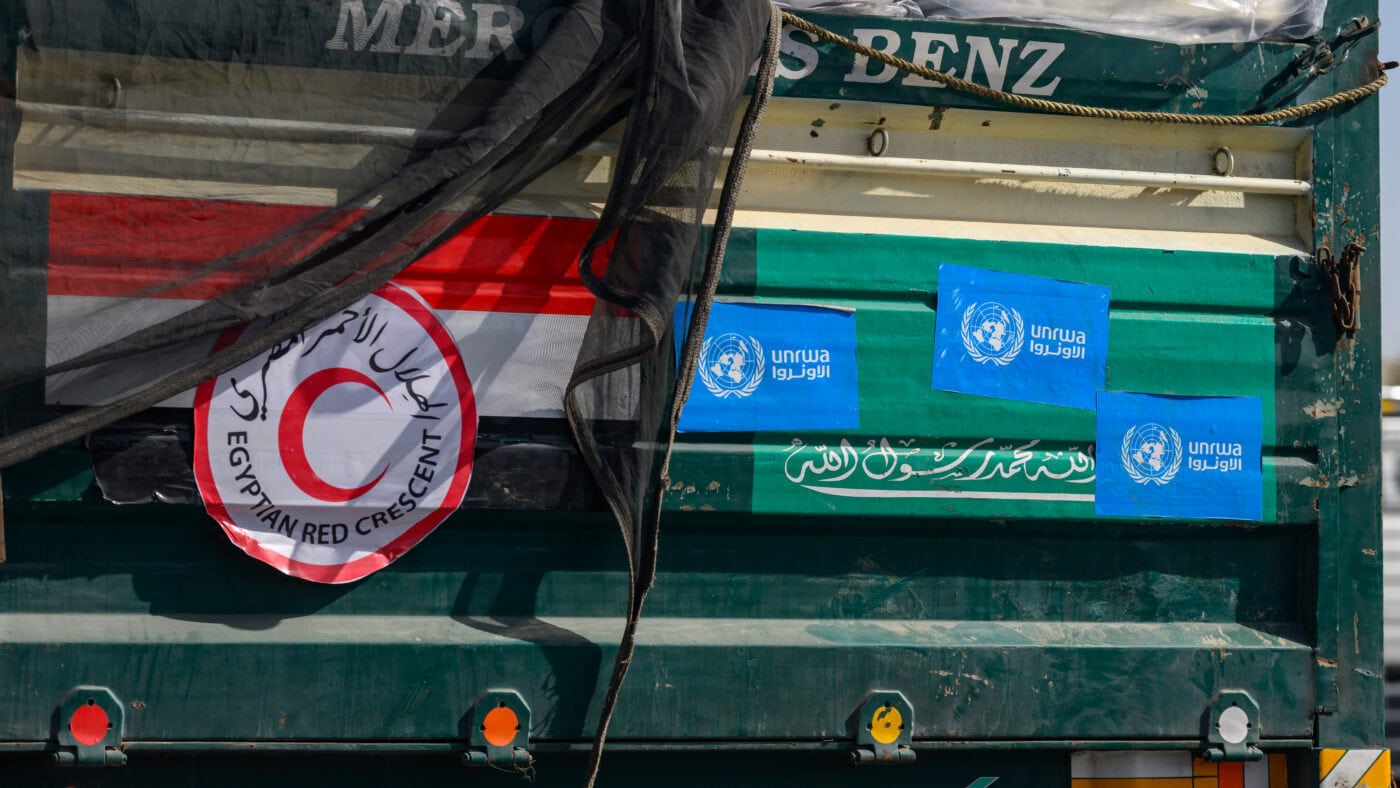Since the savagery of Hamas’s attack on Israel on October 7 last year, and the ensuing bloody conflict in Gaza, there has been sharp controversy over the role and nature of the UNRWA. The United Nations Relief and Works Agency for Palestine Refugees in the Near East was established in 1949 to provide relief for those displaced during the 1948 Arab-Israeli War and now deals with nearly 6m refugees. But its unique status and mission makes it as much part of the architecture of the problem in the Middle East as any significant part of a solution.
Consider this. UNRWA is the only major permanent UN agency dedicated to a single set of political and geographical circumstances. It has serious heft: it employs 30,000 people, while the UN Refugee Agency (UNHCR), which deals with refugees and displaced persons in 138 countries around the world, has a staff of under 19,000. Although the number of Palestinian refugees is vast, it is not the largest in the world at the moment: there are currently 6.5m Syrian refugees, 6.1m Afghans, 5.8m Ukrainians, more than 4m South Sudanese and 1m Sudanese, and 1.3m refugees from Myanmar, and those are just the biggest crises.
It is true that UNRWA is a direct-service provider, unlike the UNHCR, and therefore an exact comparison is invidious. But there is a fundamental mismatch of scale and focus.
The organisation has also gradually expanded its definition of what makes a Palestinian refugee. In 1952, it was stipulated to be anyone whose ‘normal place of residence was Palestine during the period June 1 1946 to May 15 1948 and who lost both home and means of livelihood as a result of the 1948 conflict’. However, the organisation now breezily says that refugees are ‘persons who fulfil the above definition and descendants of fathers fulfilling the definition’. It treats refugee status as an inherited trait, but, remarkably, a patrilineal one. This is not unique to UNRWA: the descendants of refugees are more broadly regarded as refugees, but what is particular to UNRWA is the caveat ‘until a durable solution is found’, which is significant.
This is where it becomes problematic. UNRWA was created deliberately as an organisation to manage an immediate crisis. It was given no mandate either to attempt to resettle Palestinian refugees, or to resolve the underlying crisis which had displaced them. The UN General Assembly instructed UNRWA to provide relief for Palestinians ‘pending a just and lasting solution to their plight’.
This has two effects. The first is to reinforce the United Nations’ commitment to the right of return. It can certainly be argued that this is enshrined in Article 13 of the Universal Declaration of Human Rights, which states that ‘everyone has the right to leave any country, including his own, and to return to his country’. Is that open-ended promise an eternal and inalienable right? Perhaps it is: in that case, however, it applies just as much to Jewish ‘settler colonialists’ who returned to Israel in the 19th and 20th centuries. That, I suspect, is not an argument which every party in the conflict would accept.
There is a more prosaic but immediate problem which is that the circumstances of its mandate and role make UNRWA a self-perpetuating bureaucracy. It has no impetus to ‘solve’ the refugee crisis, or to assist in any way to its diminution or easing, because that growing body of nearly 6m Palestinian refugees are its client base, its meal ticket and its raison d’être. Its annual budget is in the region of $1.15bn, about a third of the amount of money the UN receives overall, so this is a significant amount of money.
The ongoing nature of the refugee problem and UNRWA’s inability to address its causes has also created a culture of institutional dependency. The Palestinian Authority has created virtually no significant organs of civil society, because the welfare of Palestinians in terms of education, health and other basic areas, are within the remit of UNRWA. The organisation does not give a starving man a fish rather than teaching him to fish: it gives him a voucher for a pre-prepared fish supper.
There remain very serious criticisms about how UNRWA spends its money and the extent to which it has been used or even infiltrated by radical elements which fundamentally oppose the State of Israel. Those need to be examined and, if proven, addressed fully. But there is a wider issue.
It is right that the international community should provide relief to those who are suffering and in dire need. But UNRWA’s existence in its current form institutionalises the problem, takes away responsibility from the Palestinian leadership and entrenches a conflict which, by its own lights, can only be ended with the full transfer of large amounts of territory to Palestinian control, a very particular interpretation of the elusive ‘two-state solution’. UNRWA is the ultimate vested interest. It benefits from crisis like no other agency. It’s time to get rid of it.
Click here to subscribe to our daily briefing – the best pieces from CapX and across the web.
CapX depends on the generosity of its readers. If you value what we do, please consider making a donation.


